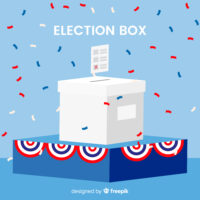With the 2024 general election right behind us and many employees returning to in-person work after being remote, employers can be sure to anticipate political discourse in the workplace. Political speech covers a broad spectrum of activity, from wearing a political pin to participating in public demonstrations. Employers are met with a legal and practical dilemma when regulating employee speech to ensure productivity and respect are still maintained. Below is a discussion of the legal implication’s employers should consider before limiting speech or taking action against an employee who has engaged in political activity outside of the workplace.
First Amendment
The First Amendment protects a public employee’s speech and limits the employer’s rights to regulate protected speech. However, the same does not apply to private employers who have greater latitude and discretion when restricting expression. Employers have various reasons to limit political speech: it disrupts workplace efficiency, creates distractions, affects morale, and could offend some individuals.
While the First Amendment does not apply to private employers, New York State law and the National Labor Relations Act (NLRA) may protect employees and allow them the right to engage in specific political discussions within and out of the workplace.
New York Labor Law
It is unlawful for employers to discriminate against employees for their political activities outside of working hours, off the employer’s premises, or done without the use of the employer’s equipment or other property, so long as these activities are legal. While the law defines protected political activity to include running for public office, campaigning for a candidate, or participating in a fundraiser for a political party, New York courts have taken an expansive view of the scope of “political activity.” Recent cases have defined the term broadly enough to include discussion about political affiliations that occur outside of scheduled work hours.
This makes it possible for courts to protect an employee’s out-of-work conduct posted on social media or in an alternative public platform, as constituting “protected political activity.” Unless an employee’s activities materially conflict with the employer’s business, conflict with the employee’s obligation to work a full-time schedule, or diminish the value of any unique services the employer offers, actions restricting off-duty political activity are not permitted.
Federal National Labor Relations Act
The NLRA’s provisions apply to non-union employees working for private employers. Section 7 of the NLRA guarantees employees the right to engage in political speech concerning concerted activity for mutual aid or protection. The term “mutual aid or protection” is interpreted broadly to refer to the rights of employees to engage in activity aimed at supporting each other in matters related to the workplace. A wide range of collective employee actions can be protected by the NLRA, even if those actions are not formally organized or do not involve a union.
When political discussion on the job turns to safety and workplace regulations, pay transparency laws, or minimum wage, employees have a right to discuss these issues with one another. Employees can discuss the different legislations that impact the workplace, and they may campaign for a political party if their actions relate to working conditions.
Takeaway
Employers must tread carefully when navigating the borders of political discourse both in and outside the workplace. While private employers may have large discretion to regulate speech, overreach can lead to legal repercussions. Employers are urged to be mindful of state and federal laws. This may require considering the location of where the speech occurred, whether what was said constitutes protected political activity, and whether the speech is related to a work or labor issue.

